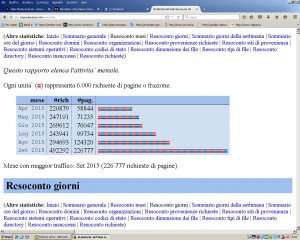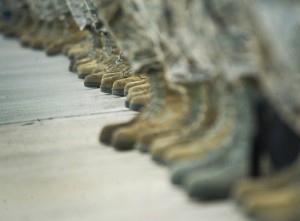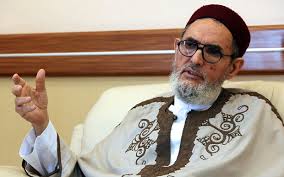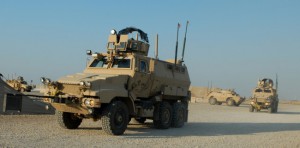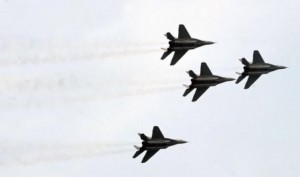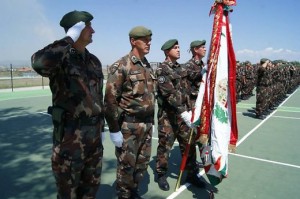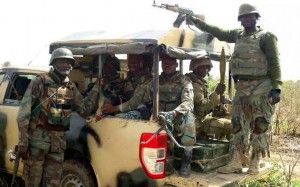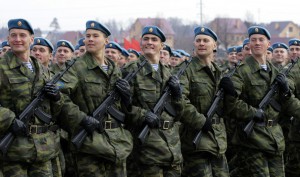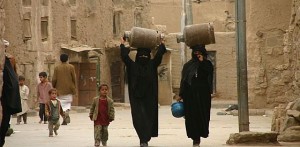Is Islamic State devising nuke warfare?
A veteran German journalist, who spent ten days with the Islamic State of Iraq and Syria (ISIS), has claimed that the terrorist group is planning a nuclear warfare strategy as its end game, with plans for the “largest religious cleansing in history”
According to News.com.au, Jürgen Todenhöfer talked about his stay with the terrorist group in his book called ‘Inside IS — Ten Days In The Islamic State’.
Todenhöfer was taken care of by the infamous Jihadi John, who gained popularity after he appeared on ISIS beheading videos.
Todenhöfer has warned that the west is “drastically underestimating the power of ISIS”, who he called a “nuclear tsunami preparing the largest religious cleansing in history” with plans to kill “several hundred million people”.
Todenhöfer has written in his book that the ISIS controlled an area greater than the United Kingdom.
The West must face reality: only a ground war can stop Islamic State
It’s a thorny issue that has experts divided. For some, a ground war is a trap and should not even be considered; only well-targeted, reinforced airstrikes will do the job. For others, it’s impossible to slay ISIS without hunting down its jihadists one by one, from street to street, hideout after hideout, a strategy that requires the immediate deployment of sufficient numbers of ground troops.
Others still, believe that we’re targeting the wrong enemy. The fight against terrorism, they say, is not like a traditional military confrontation, but first and foremost the work of intelligence services and the police.
Between a war in the air, on the ground, or a secret war, citizens — who know less than the so-called experts — often have little more than their prejudice as a compass. And yet, despite their lack of understanding, a moment of common sense can help them see more clearly.
Everybody knows by now that ISIS beheads, tortures, rapes, slaughters, manipulates, dehumanizes. This so-called “Islamic State” destroys the bodies, the souls, the relics of the past, the art — in other words, everything that makes up humanity.
Nobody doubts that the cruelty of this group is without boundaries, that its determination is unyielding and its savagery extreme. And everybody can easily see that ISIS is getting bigger and stronger by the day. Tthe more atrocities it commits, the more its power of attraction on the world’s angry masses intensifies and the more branches and allied groups are created, from the Maghreb to central Africa, and beyond.
Unless we’ve become desperately naive, it’s impossible to still imagine we could confine this danger and limit its scope. There is no such thing as a safebox where we can leave ISIS to rot. If we don’t fight it, corpses will keep piling up, entire populations will be destroyed and more ancient temples will be blown to dust. Not fighting it will lead to terrorism spreading all over the globe, creating uncontrollable situations everywhere.
Common sense commands us to move to the rapid and total destruction of ISIS.
The terrorist group has time on its side. Hesitations and inefficient operations allow it to prosper and even to progress, step by step, in establishing a caliphate that dreams of becoming perennial and reaching worldwide. The later the great confrontation will come, the more difficult and uncertain the outcome will be.
Pacifism’s grip
As things stand today, defeating ISIS’ 30,000 men — even if they’re well equipped, determined and radicalized — is definitely within the reach of our armies. But if tomorrow they’ve grown more numerous and better equipped, scattered across more territory, operations will be even more risky and their outcome more difficult to predict.
At that point , the situation becomes entirely unthinkable.
That said, an efficient war is hardly easy to organize, and strategic, political and diplomatic hurdles must first be overcome. We’d need to secure a European consensus, cooperation from Arab countries, a transformation of America’s stance … In other words, nothing that’s simply or quickly obtained, to say the least.
But the biggest stumbling block is within each of our heads. It’s been a long time since we’ve ceased to understand the Clausewitz formula, according to which “war is merely the continuation of politics by other means.” After two world wars, the construction of a peaceful European coexistence and the United Nations’ system, pacifism itself has become second nature for most Westerners. The idea of a “just war,” which used to be all too common, now seems strange, unreal or even obscene.
We look at 20th-century fighting with a mixture of dread and incredulity. After some time, we surely understand that to eradicate savagery, it was necessary to take up arms. But we’ve failed to grasp the direct connection with the present. Until now, at least.
Those who see that connection say we can’t afford to wait until it’s too late. They cannot, therefore, keep quiet about it, even though they risk looking like blind warmongers and being labeled as “Neocons” and many other nasty things. But given the nature of ISIS, of how it acts and what it can become, it seems now as if a war on the ground is the only solution that remains. Of course, it’s also the worst solution.
Except, maybe, for all the others.
Libya’s grand mufti in Tripoli: Dialogue draft invalid if Sharia law not accepted
Sheikh Sadek Al-Ghariani, still accepted by the regime in Tripoli as Libya’s grand mufti, has said that unless the Libya Dialogue agreement accepts Sharia law and has it at the top of the text then it is invalid.
He was speaking to gread applause at a workshop on the UN-brokered Dialogue held today at the General National Congress (GNC). When he arrived to speak, many participants started shouting takbirs (“Allahu Akbar”).
(The Dialogue text in fact says in its preamble that “and that Islamic law (Sharia) is the source of legislation”. However, for Ghariani, who has resolutely opposed the Dialogue until now, nothing less than Sharia being the law, rather than its source, will do.)
The workshop was attended by some 100 key players in the Tripoli regime, including its prime minister, Khalifa Ghwell, members of the GNC, elders and municipal representatives together with other opponents of the House of Representatives (HoR).
None of the GNC’s Dialogue team was in attendance having already left for New York.
Some members of the GNC supported the Dialogue, expressing optimism as to its prospect. Others did not, insisting that the Supreme Court’s ruling last November which they say abolished the HoR and reinstated the GNC had to be accepted.
Abdulraouf Al-Manaie (elected to the HoR for Abu Sleem), when referred to as an HoR boycotter, said he was no not because it no longer existed and therefore he could no longer be a member of it.
In his speech, Ghwell said that the Dialogue was incompatible with the GNC and expressed his absolute opposition to the GNC delegates to the Dialogue continuing to have anything to do with it. He accused them of ignoring what he called “putchists” and “criminal gangs” – a reference to the Libyan National Army and Khalifa Hafter – who had bombed Benghazi, Derna and Kufra “and killed innocent elderly people, women and children”. Claiming to support dialogue, he said it could only be between Libyans who supported the 17 February Revolution.
Donated MRAPs inadequately armoured, risk to Peshmerga
Mine resistant, ambush protected (MRAP) vehicles given to the Peshmerga by the US have been described as offering the protection of a “sardine can” by an ex-Special Forces member.
Commenting on photos seen by Fox News, Phil Hudicourt criticised the delivery of vehicles without protective side armour.
“The military calls it an ‘RPG magnet’. I don’t know [at] what level it was made, if it was made at a low level, high level, but it’s a pretty stupid decision. Because riding in those MRAPs, with all the amount of RPG 29s in the country, is committing suicide.
“The RPG29 is a tandem rocket, dual warhead rocket, and without the plates, can go through the side of an MRAP like it was a sardine can.”
In a statement the US State Department explained the MRAPs are protected against land mines and improvised explosive devices (IEDs), but that the side armour is an upgrade to the vehicle, and one that they are unable to provide.
“The State Department reviews each EDA [Excess Defence Articles] request on a case-by-case basis that considers the needs of potential recipients, safeguarding potentially sensitive defence technologies, as well as the ability of the recipient to operate and sustain the equipment, among other factors. Under US policy, Anti-EFP (Explosive Formed Penetrator), or any other types of vehicle Side-Armour, are not part of the MRAPs standard configuration and is not exportable. Partners do have the option to install their own or purchase comparable systems elsewhere.”
A former Pentagon official from the Bush administration claimed that without the side armour the MRAPs are useless in the face of Russian RPGs taken as spoils by Islamic State from the Syrian regime.
“Without the plates, the RPG is specially designed to attack armoured vehicles,” said Steve Bucci. “When it hits the vehicle, it literally punches a hole inside it, right through the armour and then throws a lot of hot metal around inside the vehicle so it’s designed to kill anybody inside and if possible cause the vehicle to explode.”
He concluded by insisting the US had an obligation to upgrade the MRAPs or send technicians that could assist.
“Sending … vehicles that are not up to par, that are not going to protect them in the way that they are intended is foolishness, and even if it wasn’t the intent, that message that America really doesn’t care that much is what’s going to be read into this.”
basnews.com
Breaking: Russia asks US to remove all planes from Syria’s air space
Hungarian troops to help train Kurdish fighters against Islamic State
Hungarian troops serving in Kurdish-held northern Iraq will participate in training the Kurdish Peshmerga forces to fight the Islamic State (IS) terrorist group, Foreign Minister Péter Szijjártó said. he minister spoke following the UN summit on combatting IS militants in New York City.
The Hungarian delegation at the summit was led by Prime Minister Viktor Orbán. “Unfortunately the Islamic State is conquering more and more territories, more and more people are forced to leave their homes because of their atrocities. Therefore if we truly intend to ease the migration pressure on Europe, then we must step up our efforts against the Islamic State,” Szijjártó said.
“Hungary is prepared to do so, and so our contingent of 110 soldiers, who are already in Kurdistan, will from now on take part in training Kurdish Peshmerga fighters alongside their security and protection tasks,” he said. In July this year, 100 Hungarian soldiers joined officers already stationed in Iraq and took over from peace-keepers working in the region.
The Nigeria Army gun down notorious terrorist, arrest Boko Haram kingpin
The Nigeria Army has announced the capture of Alhaji Tijjani Usman Damagum whom it describes as a high profile member of the Boko Haram group.
Army spokesman, Colonel Sani Kukasheka Usman stated that Damagum is currently undergoing interrogation while another member of the group was gunned down on Monday afternoon.
“Troops of 3 Division have arrested a suspected Boko Haram terrorists group kingpin, Alhaji Tijjani Usman Damagum.
“He was tracked down and arrested at Damagum town, Yobe State yesterday.
“A high profile Boko Haram terrorists’ group member, he has led Boko Haram members on various attacks especially in Yobe State.
“The suspect is currently undergoing interrogation with a view to arraign him soon,” he stated.
He also gave insight into the operation that led to the Army’s killing of an unnamed terrorist from whom soldiers allegedly recovered an AK-47 rifle.
“In an offensive operation to clear Boko Haram terrorists enclave around Kwatarha and Torikwaptir general area of Gwoza Local Government Area of Borno State, a notorious Boko Haram terrorist that had been wrecking havoc among the communities was gunned by our troops on Monday afternoon.
“During the operation, four other terrorists were believed to have escaped with gunshot wounds,” he added.
Russian parliament: OK sending troops abroad and military action in Syria
Russian lawmakers on Wednesday gave the Kremlin approval to send troops to Syria, according to Russian media reports.
President Vladimir Putin has to request a parliamentary approval for any use of Russian troops abroad, according to the Russian constitution. The last time he did so was before Russia annexed Ukraine’s Crimean Peninsula in March 2014.
The Federation Council, the upper chamber of parliament, on Wednesday cut its live web-cast broadcast in order to consider Putin’s request.
Yemen: Houthi atrocities on women strongly condemned
Arab and Yemeni human rights defenders and activists have condemned in the strongest possible terms the brutal atrocities, crimes and violations committed by the Houthi militia and group of deposed president Ali Abdullah Saleh against the women in Yemen.
Speakers condemned these human rights abuses terming them as “bereft of human sense” and said the perpetrators had no regard for the sanctity of women in Yemen.
These crimes, they underscored, had drawn severe criticism and condemnation from the international community as they constituted flagrant violations of the international conventions and declaration of women’s human rights.
The human rights defenders were speaking at a landmark event organised by the Arab Federation for Human Rights (AFHR) on the sidelines of the 30th session of the UN Human Rights Council in Geneva to expose the heinous crimes perpetrated by the Houthi militia against the Yemeni women. The event topped the list of anti-human rights activities that were discussed in Geneva.
Taking the floor first, Dr. Mona Hejres, a member of the AFHR and head of ‘Together for Human Rights’, spoke about the scale of suffering that the Yemeni women endured, ranging from violations to war crimes committed by the Houthi militia and Saleh group ever since they took control of Yemen and toppled the legitimate government.
Dr. Hejres said women, during the rule of the deposed president Ali Abdullah Saleh, had been subjected to grave human rights violations, noting that women were active participants in the revolution that drove Saleh out of power.
During that revolution, she said, women had faced many human rights crimes including killing, torture, arbitrary arrest and detention, and use of excessive force. These savage crimes, she added, made women the most vulnerable segment of the Yemeni community to face gross violations, exclusion and oppression.
Being deprived of their political, cultural and social rights, as well as their freedoms and role in running the state’s affairs and contributing to the nation’s development and building modern Yemen, Yemeni women have since been on a tireless struggle for their rights and freedom.
In her paper, Dr. Hejres elaborated on the suffering of Yemeni women at the hands of the Houthi militia and Saleh group, particularly reporting on murder, forced disappearances, kidnappings, deprivation of basic educational and health services, bombardment of residential districts, along with assassinations in the capital Sana’a, Aden and other cities.
She called upon the international community to live up to its responsibilities in protecting the Yemeni people, especially women, and back the Arab Coalition’s operations seeking to protect the Yemeni people. She also appealed to the UN Security Council to protect world peace and security by swiftly enforcing its resolutions on Yemen and ensure protection, safety and security for its people, and particularly women.
During the event, a number of heads of Yemeni human rights associations and organisations and members of the Yemeni Coalition to Monitor Human Rights Violations carried out by the Houthi militia and Saleh group in Yemen, confirmed that the suffering and violations committed against both, the Yemeni people and women in particular, were monitored and documented in its report, published by the Human Rights Council a week ago.
The report requested the international community and the UN Human Rights Council to work on activating their international mechanisms to protect the Yemeni people and to prosecute the war criminals belonging to the Houthis and Saleh military militias.
The AFHR and the Yemeni Coalition to Monitor Human Rights Violations, reiterated their rejection of the West’s move regarding a request to form an international Facts Finding Committee, as they perceived that such a move would dilute and ignore the human tragedy under which the Yemeni citizens have been reeling, especially when they are facing illegitimate and terrorist groups which practise terrorism and commit crimes against peaceful Yemeni civilian citizens in all areas of Yemen.
They also see in this move a way to create another Syria and a repetition of what happened in Iraq, stressing the importance of the international community rallying efforts to implement its international resolutions when it comes to those criminals.
At the event, Maryam Al Ahmadi, an activist at the Arab Federation for Human Rights (AFHR), underlined the importance of prosecuting war criminals affiliated to Al Houthi militia and the Saleh group and not giving them any chance to escape punishment or any political consecration in Yemen.
She also indicated the need to work hard to drag the Houthi militia and the Saleh group to face international justice, stressing the role played by the Arab Federation for Human Rights to accomplish this in cooperation with a lot of regional and international bodies.
In the same context, she also emphasised the importance of the international community assuming its international responsibilities aimed to provide protection to women during wars and armed and military conflicts and disputes.
Maryam bin Tawq, Coordinator at the Arab Federation for Human Rights, spoke about the importance and legitimacy of establishing the international coalition ‘Operation Restoring Hope’, aimed at protecting the Yemeni people from violations and crimes against humanity being carried out by Al Houthi group and the Saleh Militia, monitored by the Euro-Mediterranean Center for Human Rights.
She also pointed out that the Centre has found that those criminals have committed more than 4,500 human rights violations within the course of just one month of their control of Sana’a.
She added that some of these crimes can very well be considered as war crimes or crimes against humanity.
In this regard, she noted that the Centre has also provided some figures pertaining to the number and nature of violations committed by the Houthi militia and Saleh group against the Yemeni citizens, stressing the need to continue to support the legitimacy of the ‘Operation Restoring Hope’ that came after well considered decisions and was aimed at meeting humanitarian needs, as well as to provide protection to the Yemenis and their right to live in security and peace in their country.
